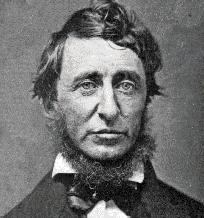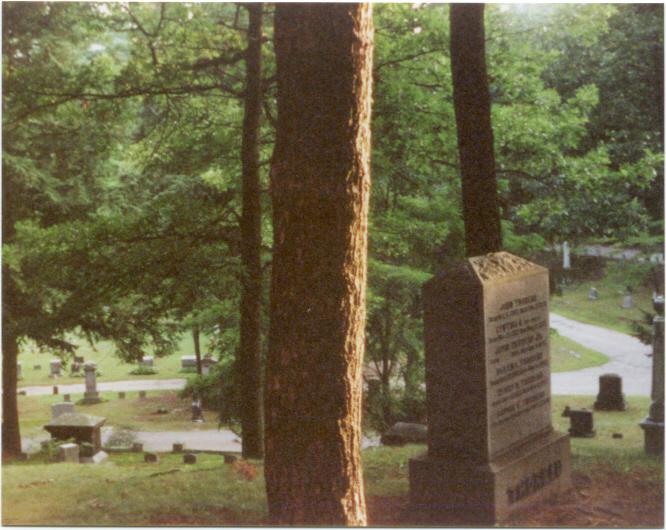This is an old revision of this page, as edited by 24.208.216.254 (talk) at 02:33, 19 December 2003. The present address (URL) is a permanent link to this revision, which may differ significantly from the current revision.
Revision as of 02:33, 19 December 2003 by 24.208.216.254 (talk)(diff) ← Previous revision | Latest revision (diff) | Newer revision → (diff)

Henry David Thoreau (July 12, 1817 - May 6, 1862) was a noted American author and philosopher who is most famous for Walden and his treatise on civil disobedience.
He was born in Concord, Massachusetts and graduated from Harvard in 1837.
Hailed by some as the first environmentalist, Thoreau was a profound philosopher on the human condition. His essay Civil Disobedience was inspirational for Tolstoy and Mohandas Gandhi.
).
Thoreau died in the city of his birth, Concord, and below is a picture of Thoreau's grave in Sleepy Hollow Cemetery (not the famous Sleepy Hollow Cemetery) of Concord, Massachusetts:

Bibliography
- "A Week on the Concord and Merrimac Rivers" (1839)
- "Civil Disobedience" (1849)
- "Slavery in Massachusetts" (1854)
- "Walden" (1854)
- "A Plea for Captain John Brown" (1860)
- "Excursions" (1863)
- "The Maine Woods" (1864)
- "Cape Cod" (1865)
- "Early Spring in Massachusetts" (1881)
- "Summer" (1884)
- "Winter" (1888)
- "Autumn" (1892)
- "Miscellanies" (1894)
- "The First and Last Journeys of Thoreau", lately discovered among his unpublished Journals and Manuscripts (1905)